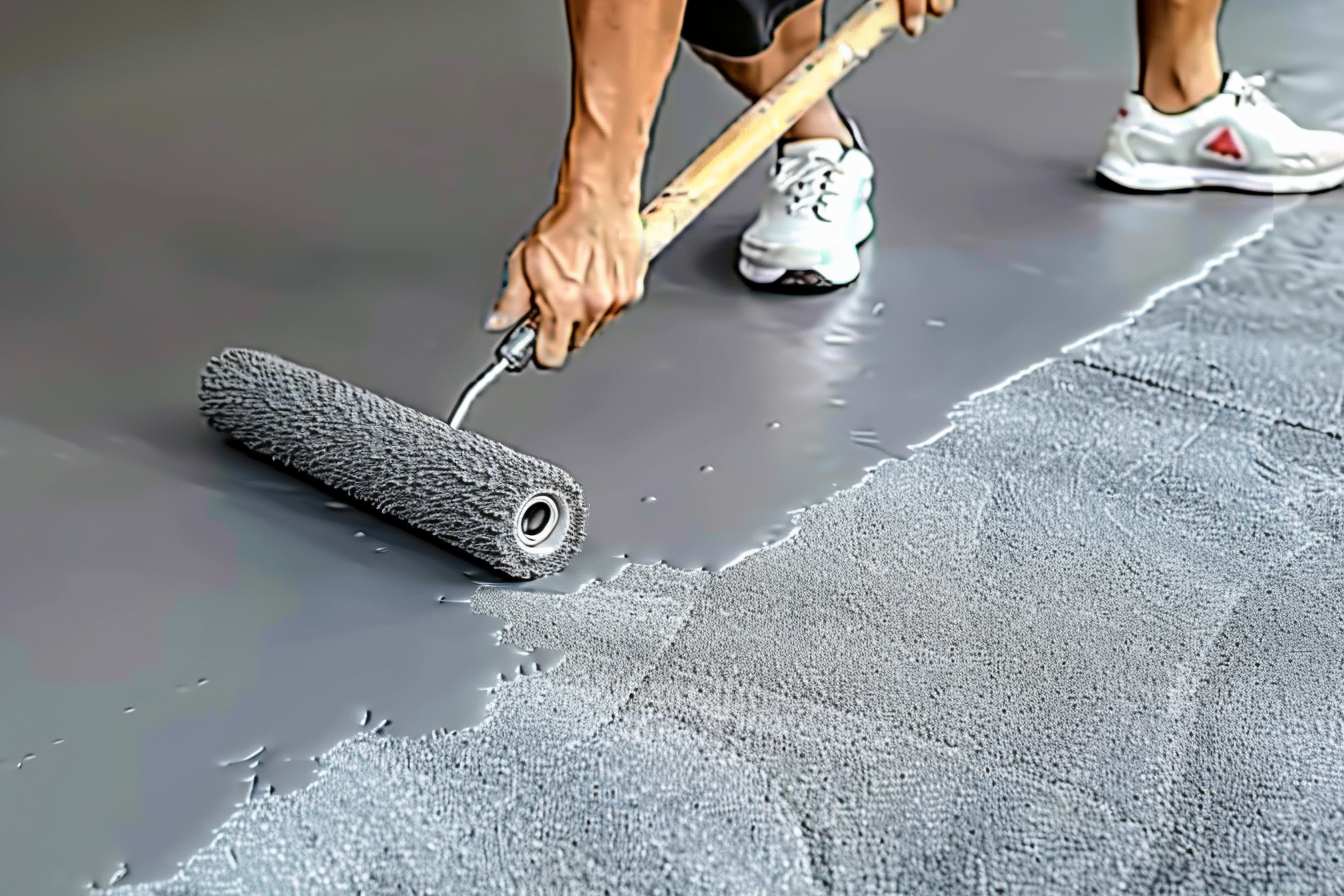The Complete Guide to Garage Floor Coatings: Types, Benefits, and Selection
Garage floor coatings represent one of the most impactful upgrades you can make to your home's functionality and appearance. Beyond providing an attractive finish, these specialized coatings protect concrete surfaces from stains, chemicals, moisture, and the daily wear that comes with vehicle traffic and storage. As homeowners increasingly view garages as extensions of living space rather than merely utilitarian areas, the demand for durable, attractive flooring solutions has grown significantly. This comprehensive guide explores everything you need to know about garage floor coatings—from popular epoxy options to alternative solutions, installation considerations, and maintenance requirements.

Popular Epoxy Coatings for Garage Floors and Concrete
Epoxy coatings remain the gold standard for garage floor finishes due to their exceptional durability and versatile appearance options. Traditional epoxy consists of a resin and hardener that, when mixed, create a chemical reaction forming a rigid plastic material with remarkable bonding capabilities. Water-based epoxies offer easier application and lower odor but provide less durability than solvent-based alternatives. Solid epoxies contain 100% epoxy solids, delivering the thickest, most durable coating but requiring professional installation due to their quick curing time and application complexity. Metallic epoxy systems incorporate special pigments that create stunning dimensional effects resembling marble, giving garage floors a high-end, customized appearance that many homeowners prize for showcasing their vehicles.
Durable Floor Coatings Ideal for Garage Environments
Beyond epoxy, several coating systems offer excellent performance in garage settings. Polyaspartic coatings have gained popularity for their rapid cure times—often allowing same-day application and use—along with superior UV resistance that prevents yellowing over time. Polyurea systems provide exceptional chemical resistance and flexibility, making them ideal for climates with significant temperature fluctuations that might cause more rigid coatings to crack. Hybrid systems combining epoxy base coats with polyaspartic or polyurea top coats deliver the best of both worlds: epoxy’s excellent adhesion and build quality paired with the superior protection and faster curing of advanced polymers. For homeowners seeking maximum impact resistance, methyl methacrylate (MMA) coatings provide industrial-grade durability, though at a significantly higher price point than other options.
Guide to Selecting Floor Coatings for Concrete Surfaces
Choosing the right garage floor coating begins with a thorough assessment of your concrete’s condition. New concrete requires at least 30 days curing time before coating application, while older surfaces must be evaluated for moisture issues, cracks, and previous treatments. Surface preparation represents perhaps the most critical factor in coating success—proper cleaning, etching, and sometimes mechanical grinding creates the profile necessary for strong adhesion. Climate considerations should influence your coating choice, as some products perform poorly in extreme temperatures or high humidity during application. Your usage patterns also matter; households with heavy tools, automotive work, or frequent vehicle movement require higher performance coatings than those using garages primarily for storage.
Epoxy Garage Floor Cost and Maintenance Overview
The investment in garage floor coatings varies significantly based on several factors including coating type, garage size, and installation method.
| Coating Type | DIY Cost (200 sq ft) | Professional Cost (200 sq ft) | Typical Lifespan |
|---|---|---|---|
| Water-Based Epoxy | $200-$300 | $600-$900 | 3-5 years |
| Solid Epoxy | $350-$550 | $1,000-$1,600 | 10-20 years |
| Polyaspartic/Polyurea | Not recommended DIY | $1,200-$2,000 | 15-20+ years |
| Hybrid Systems | Not recommended DIY | $1,400-$2,200 | 15-25 years |
Prices, rates, or cost estimates mentioned in this article are based on the latest available information but may change over time. Independent research is advised before making financial decisions.
Maintenance requirements vary by coating type but generally remain minimal compared to uncoated concrete. Regular sweeping prevents abrasive particles from scratching surfaces, while periodic mopping with pH-neutral cleaners maintains appearance without damaging the coating. Many high-quality systems require only an occasional reapplication of clear topcoat every 5-10 years to refresh the surface. Immediate cleanup of automotive fluids prevents potential staining, though most premium coatings offer excellent chemical resistance.
Effective Garage Floor Coverings for Residential Spaces
While permanent coatings deliver the most comprehensive solution, alternative garage floor coverings offer advantages for certain situations. Interlocking floor tiles made from PVC or polypropylene provide quick installation without surface preparation and can be removed when needed—ideal for renters or those planning future concrete work. These systems allow for creative color patterns and typically feature drainage channels to manage moisture. Roll-out mats offer the simplest solution, coming in various materials from vinyl to rubber compounds. Though they provide less comprehensive protection than coatings, they can be installed in minutes and moved as needed. For homeowners seeking texture and slip resistance, concrete overlays with stamped patterns create distinctive appearances while addressing minor surface imperfections in the underlying slab.
When selecting any garage flooring solution, consider not just the initial appearance and cost but the long-term value, particularly how the system will perform under your specific usage conditions. The most successful garage floor projects result from matching the right coating technology to your environmental conditions, aesthetic preferences, and performance requirements.




